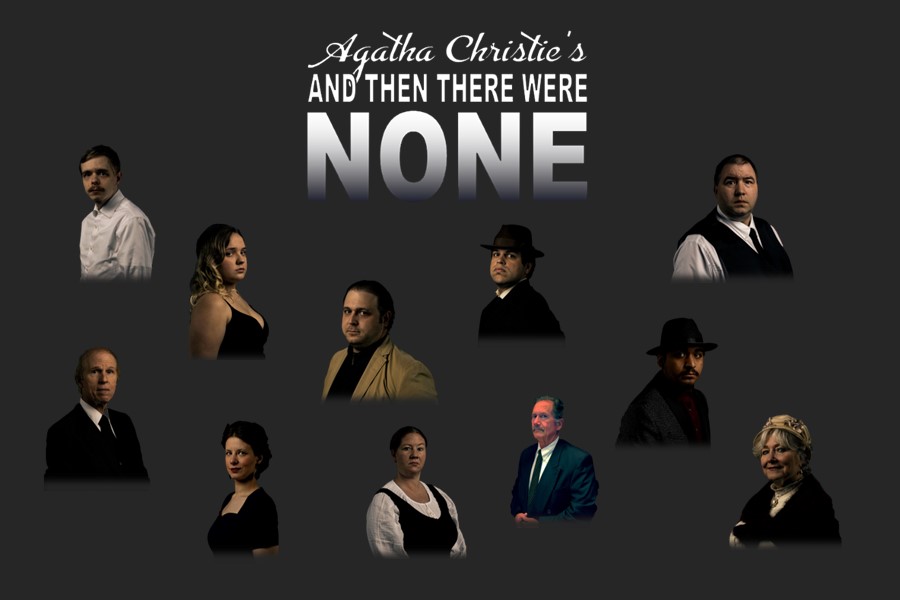Three blind mice. Three blind mice. See how they— wait. No. That’s not quite right. That’s a different Christie. This is the one with the creepy little poem about how people get plucked off one by one…And Then There Were None. Currently appearing on Just Off-Broadway’s main stage, as a kickoff to their ‘return-to-live-in-person-theatre’ and the start of their 2022 season, JOB is presenting Agatha Christie’s And Then There Were None, a suspenseful thriller that sees ten strangers invited to a remote island where they then become trapped and much like the poem, start disappearing into a murder most foul. Directed by Jason Crawford, this eerie mystery has some thrills and chills (well, not so much chills for opening weekend as the venue had some air-conditioning issues) for local audiences all over Charm City.
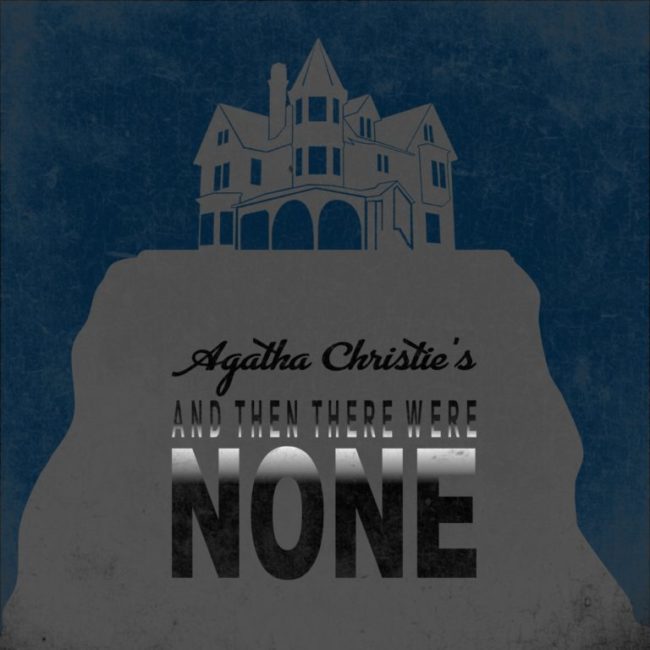
If you’re not familiar with the stage works of Agatha Christie, after a while, with the exception of the ones that take place on the train, they all start to look similar. Cozy little guest house, or elaborate guest mansion, tucked away someplace remote— in this instance a secluded island off the coast of Devon— and inevitably a storm takes out either the power or the phone lines (sometimes both) and essentially cuts off the players from communication with the outside world and also from escape. It’s Christie’s well-known ability to spin thrill and suspense out of these repetitive circumstances that keeps us coming back for more. For this show, Set Designer Theresa Bonvegna has given us the typical Christie-setting: a front sitting room or parlor room of the aforementioned guest house, appropriately furnished and themed for the indeterminate time in merry old England’s recent past. Bonvegna keeps the setting simple, but not without including the necessaries— a fully-loaded alcoholic sideboard and the fireplace upon which the ‘ten little soldier’ figurines are mounted and above which the disturbing poem hangs.
In addition to being the show’s director, Jason Crawford doubles up as the show’s Sound Designer and co-designs the show’s lighting. This is where some of the more technical hiccups come into play. Because of the acoustics of the space and the fact that the performers are not mic’d, sound becomes an issue. About half of the performers do not project their voices (and some do not enunciate their words clearly either) and a lot of the initial introductions of who’s who gets lost. Crawford choices to create a tinny-style recording for the ‘spooky recording’ that gets played early on in the production, but the sound delivery of this recording is garbled and distorted (and not in an intentional way.) As this is the soundbite that exposes why each of the ten strangers have been brought to the island, it is a shame that this integral plot point is unintelligible and not heard. The production may have been better served if an off-stage voice simply read these accusations aloud; the audience would more readily forgive the fact that it didn’t sound like a ‘recording on a record’ if they could understand what was being said. The sound mishaps and the heat in the building make the production all ‘…a bit sixes and sevens…’ though don’t let that deter you; there are some very impressive moments among what come to be the core half of the performers.
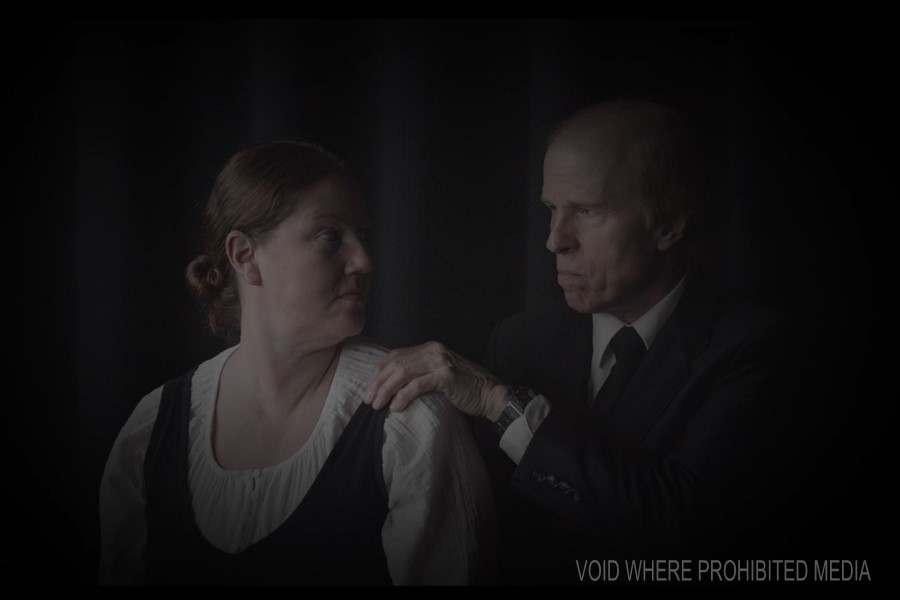
It’s interesting at the community level to see the various take and approaches when it comes to accent delivery. I believe it is preferrable for an actor to not force an accent on the character (even if the show is an all-English drama-thriller) if they cannot consistently or convincingly carry on; this is a tactic that Director Jason Crawford utilizes well here. About half the cast comes to bat with some varying degree of English accent. The other half does not and that’s perfectly acceptable; it’s more important to clearly understand what’s being said rather than to hear the dialect origin of where it’s being said. Those with noteworthy accents include Dr. Armstrong, Lady Brent, and whatever subtle thing the Honorable Sir Lawrence Wargrave is putting on. James Fitzpatrick, as the stereotypical butler/manservant character of the house, also deserves a nod for his lowbrow working class, not-quite-cockney sound too.
Crawford keeps the pacing of the show tight; that is how to successfully ensure that the suspenseful elements and thrilling chills of Christie’s work reach their fullest potential. The cast is credited with fabricating their own costumes and some of them are quite impressive, including the posh black affair that the Vera Claythorne (Emily Watson) character brings to dinner, every fitted and tailored outfit we see on Dr. Armstrong (Sarah O’Hara) and the hat featured on the speedy Mr. Marston (Mike DeNicolis.) Ultimately, despite the troubles with sound, projection, and the atmosphere (though this led to some brilliant unexpected humor at the top of Act II when the characters started complaining about how very cold and chilly they were) the play had some very impressive characterizations and managed to uphold that suspenseful thrill one expects from any Agatha Christie mystery.
Standout performances included the broody, miserably cantankerous Emily Brent (Gail Shapira) who also maintained a consistent, albeit pinched, accent during her time alive. (It’s not a spoiler, folks, the play is literally called And Then There Were None. Everybody dies— that’s not what makes it mysterious.) Shapira delivers a biting, bitter, old-spinster character with quite a bit of aplomb. Almost the polar opposite of her performance is that of Jim Morgan, playing the frail and feeble General MacKenzie. Morgan’s mannerisms make him appear as if he could be a man of nearly 100, between his gingerly shaking hands, his far-away glassy eyes, and the way he lets some of his text, especially once he’s become properly spooked, tremble from his lips.
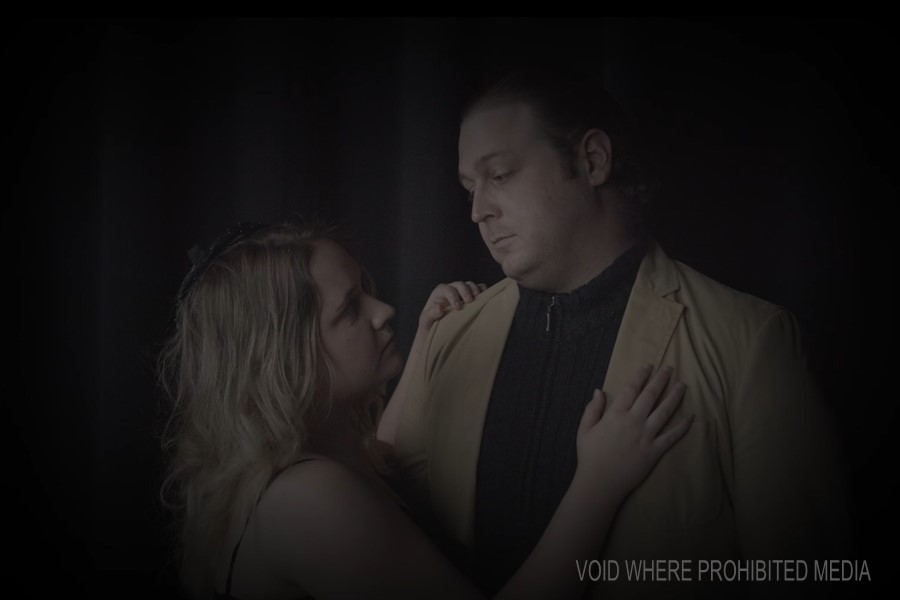
The brash and cocky Captain Philip Lombard (Patrick Jay Golden) never loses his confident, cocky air, even when things go— as they say in jolly old England— ‘sixes and sevens.’ There is something unnervingly cool about him; nothing phases Golden’s character and the utterly aloof and nonplussed nature is both reassuring and unsettling. Do you feel relieved that he’s not bothered or terrified because that might make him a killer? The way he interacts with the others, particularly during his more overt flirtations with Miss Vera Claythorne (Emily Watson), gives you cause to be both trusting and suspicious of him at all times. Watson, as the archetype of Christie’s ‘hysterical woman’, gives a rather good portrayal of the histrionics associated with women experiencing traumatic events during that era.
Chris Thomas, as the surly and take-charge Honorable Sir Lawrence Wargrave, has a ferocious stage presence about him. There is just something completely off-putting in the most thrilling way possible about the way he carries the character all around the stage. Very early on in the performance, Thomas’ character delivers a line— “…dangerous homicidal lunatic…” –and you can’t help but feel that he could be exactly that based on how he says it. But of course this could be a red-herring, given the way Christie mysteries are structured. Thomas is a superbly grumpy and grumbly character that takes charge of the situation and yet puts you just a little on the edge of your seat every time he speaks up.
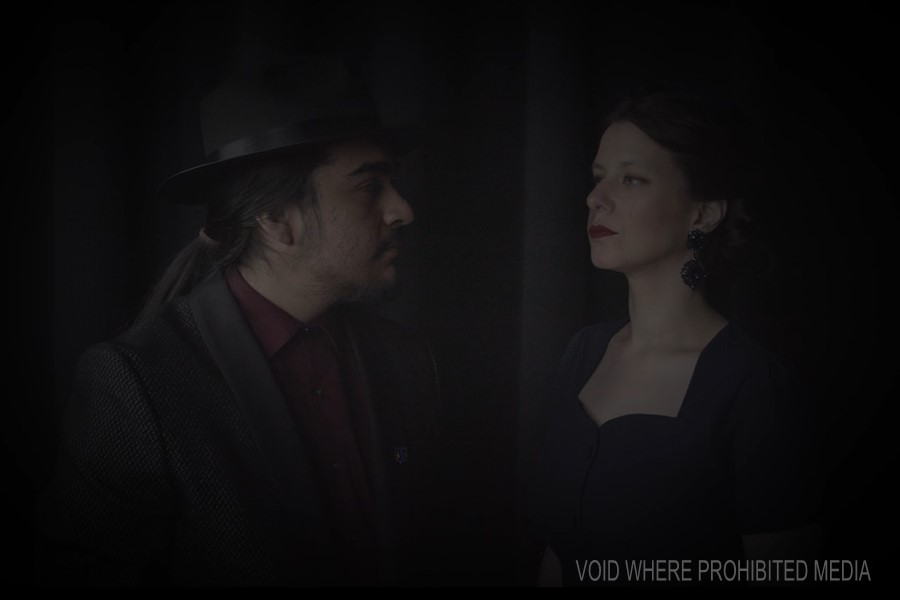
There’s Blore (Gabriel Duque) and Dr. Armstrong (Sarah O’Hara) as well, who are again strangely opposite in their style of delivery. While O’Hara’s delivery is to the letter and line a classical Mid-20th Century English woman, right down to the curled hairstyle and nervous way in which she dodges questions that might give too much away about her personal circumstance, Duque is so modern and edgy you almost wonder what he’s doing in this particular dated drama-mystery. To Duque’s credit, his character is a mysterious one with blatantly false pretenses (listen to how he introduces himself and for the first scene or two carries on as another character clearly not listed in the program), so when his true identity is revealed (not that the reveal is relevant to the mystery of the plot— it isn’t, it’s just a quirk of Christie’s writing) you tend to align his modernity with his outlier-ness. Both Duque and O’Hara have stunning enunciation, articulation, and capable projecting skills when it comes to delivering their text.
Rounding out the rest of the cast includes the once-seen-then-never-again Fred Narracott (Cory Bauer), the household servants The Rogers (James Fitzpatrick and April Parvizian respectively), and Mike DeNicolis as Anthony Marston. Bringing these ten characters (plus the Narracott character, who is literally there to setup the show and then goes away) together for some serious spine-tingling thrills is a success that Director Jason Crawford achieves, despite a few hiccups and stumbles here and there.
Be suspicious of death without bodies. Don’t leave it to the last minute to get your tickets to And Then There Were None.
Running Time: Approximately 2 hours and 30 minutes with one intermission
And Then There Were None plays through May 29, 2022 with Just Off-Broadway in residence at Epiphany Lutheran Church— 4301 Raspe Avenue in Baltimore, MD. Tickets can be purchased at the door or in advance online.

